#currer bell
Photo

Charlotte Brontë (Currer Bell), from “Mementos”, featured in Poems by Currer, Ellis and Acton Bell
#charlotte brontë#currer bell#poetry#poem#poems#typo#typography#quote#quotes#fragments#moon#summer#*
7K notes
·
View notes
Text

Happy birthday to Charlotte Brontë, great author (from a family of great authors) in the 19th Century acclaimed for works like Jane Eyre, a beautiful masterpiece.
#literature#bookworm#reading#book nerd#book recommendations#novel#currently reading#beautiful#nostalgia#charlotte bronte#mr rochester#jane eyre#classic lit#classic literature#women writers#great books#victorian era#english literature#happy birthday#author birthday#currer bell
5 notes
·
View notes
Text
He’s a 10, but he keeps a secret wife in his attic.
#Books#Reading#Literary reference#Jane Eyre#Charlotte Bronte#Currer Bell#Edward Fairfax Rochester#Bertha Antoinetta Mason
11 notes
·
View notes
Text



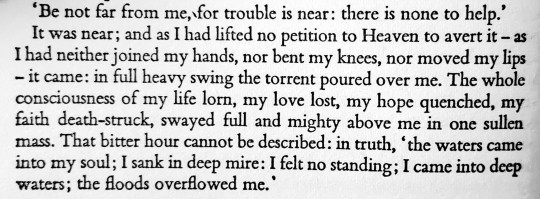

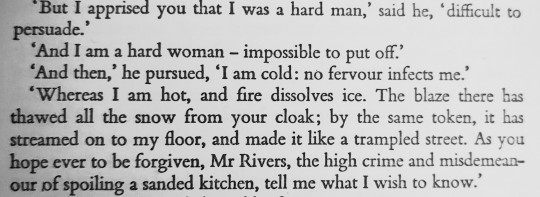




Jane Eyre - Charlotte Brontë (1847)
#jane eyre#charlotte bronte#currer bell#classic literature#books#novels#readingmaterial#paperback#quotes#favourites#1800s#19th century#Shakespeare#Macbeth#poetry#poem#Sir Thomas Moore#Fallen is Thy Throne#Marmion#Sir Walter Scott#romance#gothic fiction#nineteenth century#commonplace book
10 notes
·
View notes
Text
DEAR READER
this fucking song!! I took a class on Jane Eyre in college and we spent DAYS talking about the moments when the narrator uses the phrase “Reader”. They are very rare in the book, and the last one is at the very end and this is what it says:
“Reader, I married him. A quiet wedding we had: he and I, the parson and clerk, were alone present. When we got back from church, I went into the kitchen of the manor-house, where Mary was cooking the dinner and John cleaning the knives, and I said —
"Mary, I have been married to Mr. Rochester this morning." The housekeeper and her husband were both of that decent phlegmatic order of people, to whom one may at any time safely communicate a remarkable piece of news without incurring the danger of having one's ears pierced by some shrill ejaculation, and subsequently stunned by a torrent of wordy wonderment. Mary did look up, and she did stare at me: the ladle with which she was basting a pair of chickens roasting at the fire, did for some three minutes hang suspended in air; and for the same space of time John's knives also had rest from the polishing process: but Mary, bending again over the roast, said only — "Have you, Miss? Well, for sure!"”
So there are implications here! Which are very very cute ahhh #toeforever. But I think the important part is this sentence: “The housekeeper and her husband were both of that decent phlegmatic order of people, to whom one may at any time safely communicate a remarkable piece of news without incurring the danger of having one's ears pierced by some shrill ejaculation, and subsequently stunned by a torrent of wordy wonderment.”
The other important thing about Charlotte Brontë is that she published Jane Eyre under a man’s name, Currer Bell. Because sexism.
In conclusion- Taylor is a bad ass lit babe and deserves a place in history right alongside other great romance writers and we should absolutely read between the lines of her art (also she’s married to Joe and also likes girls but shhhh no torrents of wordy wonderment pls)
13 notes
·
View notes
Text
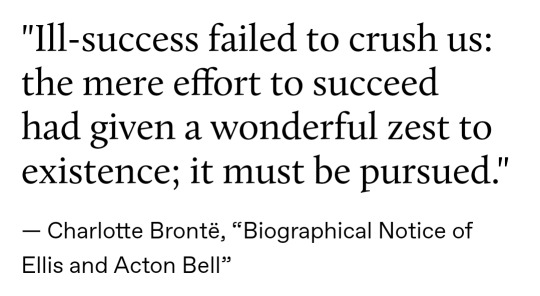
0 notes
Text
She possessed an intensity of romantic feeling that very few people in this world can form the remotest conception of.
Charlotte Bronte, "Henry Hastings" (1839)
#early whimsical funny charlotte bronte is my currer bell of choice#i enjoy jane eyre like everyone else but i couldn't even finish villette because i think lucy snowe is just the WORST#i'm sorry everyone#i'm sorry!#charlotte bronte#tales of angria#literature
192 notes
·
View notes
Text


The Night Is Darkening Round Me
The night is darkening round me,
The wild winds coldly blow;
But a tyrant spell has bound me,
And I cannot, cannot go.
The giant trees are bending
Their bare boughs weighed with snow;
The storm is fast descending,
And yet I cannot go.
Clouds beyond clouds above me,
Wastes beyond wastes below;
But nothing drear can move me:
I will not, cannot go.
— Emily Brontë (1837) from Poems by Currer, Ellis, and Acton Bell, 1946

BBC Radio 4
It’s a small world, after all. 😃

Source


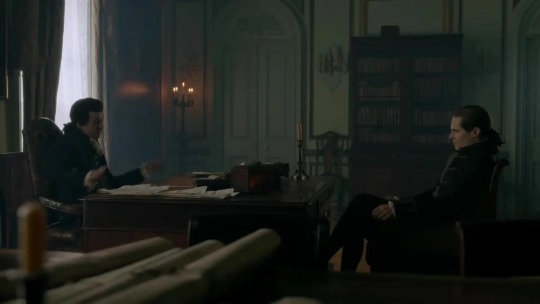
Outlander, S06E05 Give Me Liberty
outlander-online


Getty
Remember when she read O’Hare on Brontë on BBC?
#Tait rhymes with hat#Good times#Poetry#The Night Is Darkening Round Me#Emily Brontë#1837#Poems by Currer Ellis and Acton Bell#1846#The Poet And The Echo#BBC Radio 4#14 October 2022#Thanks sunsetmagic85#Thanks castlemaine123#Thanks saint-hildegard-of-bingen
39 notes
·
View notes
Text
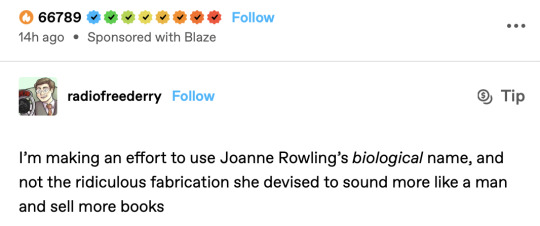
I feel like she's probably ok with it? Like do you imagine her husband calls her JK? If I'd been pressured to to use the initials of my first name and a middle name I didn't even actually have so that people wouldn't be put off from buying my book due to my sex, and then my book got so popular that it didn't receive any backlash when it came out that I was a woman, I don't imagine I'd be upset if people started using my real name. It's not like anyone thinks it's weird to say "Charlotte Brontë" instead of "Currer Bell."
829 notes
·
View notes
Text


Charlotte Brontë signatures
318 notes
·
View notes
Note
A'ight, what is it about Anne Brontë and Tenant of Wildfell Hall? I keep seeing stuff about how Anne is the unproblematic Brontë sister and that's what kept me away from her books lol
*kracks knuckles* All right. So, remember how the Brontë sisters wrote three novels simultaneously? Charlotte wrote The Professor, Emily wrote Wuthering Heights, and Anne wrote Agnes Grey. The two latter got picked up by publishers, but The Professor was rejected, so Charlotte finished up Jane Eyre and sent it to a publisher, who accepted it immediately and had it published before Wuthering Heights and Agnes Grey got printed. All three of them wrote under pen names (Charlotte was Currer Bell, Anne was Acton Bell, and Emily was Ellis Bell), because they knew their novels were, say, a little controversial, and that if it was known they were women, their characters would be judged and immediately associated to their works. So needless to say, they were VERY supportive of each other, because they knew no one else would. (Their father was also supportive, but they published their novels without telling him at first but once they did, he was very encouraging, thankfully.)
It's easy to see why Jane Eyre or Wuthering Heights would be considered controversial in their day (they still kind of are today given the Discourse(tm), lol). Agnes Grey, while it didn't do as well as JE and WH, was criticized for being a little too... let's say, honest about a governess' day-to-day life, when Anne wrote it drawing from her own experiences as a governess. The thing with Anne is that people find her stuff a little moralizing, but it was in her best interest to present Agnes as virtuous given how she made little secret of how poorly governesses could be treated, since it wasn't that rare they'd be accused of profiting from the families they were employed by, when there were abuse cases more often than not.
Then The Tenant of Wildfell Hall came out, and that's when criticism started to fly. May Sinclair (an early 20th century suffragist) would later write that the scene where Helen (the main character of the novel) slams her door to her husband's face had a reveberation that was heard throughout England. It's the story (in case you don't mind getting spoiled for a 150-year-old book) of a lady who marries a Victorian fuckboy called Huntington, ends up in an abusive household where her only comfort is her son, and once she realizes that her husband is becoming a bad influence on her child, she leaves him and manages to hide in a house that her brother is willing to rent to her, while she tries to earn a small living by painting. And people lost their shit, because according to them, Helen was a bad woman for leaving her husband, even though she did it to, you know, get her son out of a toxic environment. If Charlotte criticized anything about the novel, it's that she thought some aspects of Huntington were depicted too graphically, but they mostly had to do with his alcoholism and his adultery (this is important: those critcisms have nothing to do with Helen, or how Tenant is shade thrown at Charlotte and Emily's works). That might have been because Anne got some inspiration for Huntington from Branwell, their brother, who was also an alcoholic and got fired from his job as a tutor for having an affair with the lady of the house. Charlotte was pretty fed up with Branwell at that point, and while Emily was the one who got along with him best, they had some pretty big fights because she was in no way a pushover (so the belief that Charlotte and Emily idolized Branwell while Anne was the only one who saw through his BS is also, incidentally, BS).
So, why did Charlotte stop Tenant from being re-printed after Anne's death? Simply put, the criticism against it was getting worse, and people were defaming Anne's character because of it. Charlotte had had her own share of troubles with Jane Eyre - she dedicated the second edition to William Makepeace Thackeray (of Vanity Fair and Barry Lyndon fame) because he was her favorite author, without knowing his wife was institutionalized after suffering from severe post-partum depression. And that led, of course, to people speculating that Jane Eyre was semi-autobiographical, and that Charlotte was Thackeray's mistress. (I mean, it *is* semi-autobiographical, but Thackeray had nothing to do with it.) So she was understandably a little on edge, and while she edited Agnes Grey for a reprinting after Anne's death (given there were a lot of spelling mistakes and the like in the first printing), she asked for Tenant to not be reprinted to protect her sister's memory.
So no, Charlotte did not block Tenant from being as well-known as Wuthering Heights or Jane Eyre because she was "jealous", or because she was mad that Anne was "throwing shade" at her and at Emily. She was protecting her sister's reputation, because she wasn't even alive anymore to speak for herself and mount any kind of defense, and that was while Charlotte's own reputation was under fire, after she had lost the two people who had supported her the most - Emily died in 1848, and Anne in 1849. To try to pit these sisters against each other, when two of them died far too young and the surviving one had to pick up the pieces and defend them against public opinion - it is simply distasteful, and it needs to stop.
#Anne Brontë#Charlotte Brontë#Emily Brontë#the tenant of wildfell hall#jane eyre#agnes grey#wuthering heights#literature#english literature#also: tenant is great and you should definitely read it
450 notes
·
View notes
Text
𝐁𝐞𝐲𝐨𝐧𝐝 𝐭𝐡𝐞 𝐏𝐚𝐠𝐞𝐬 𝐨𝐟 𝐉𝐚𝐧𝐞 𝐄𝐲𝐫𝐞: 𝐑𝐞𝐟𝐥𝐞𝐜𝐭𝐢𝐨𝐧𝐬 𝐨𝐧 𝐋𝐢𝐟𝐞 𝐚𝐧𝐝 𝐋𝐢𝐭𝐞𝐫𝐚𝐭𝐮𝐫𝐞
It is indeed true that being able to stand up for yourself will help you survive the oppression of life. This is what the novel taught me. Honestly speaking, Jane Eyre is one of my most favorite novels, alongside Pride and Prejudice, Frankenstein, Charles Dickens', and Mark Twain's. Jane Eyre is a revolutionary novel written by Charlotte Bronte during the Victorian period under the gender-neutral pen name ‘Currer Bell’.
This novel exposes the sufferings of women during the patriarchal Victorian period in England. This novel shows a girl who lived in a discriminating society and was maltreated, suppressed, and shamed by the people around her, but overcame her trials with her courage. Upon analyzing the novel, I was thinking that the novel was written to awaken the spirit of the people to end gender inequity and discrimination. As a novel with strong social themes, Jane Eyre is a feminist novel, as it puts women in the spotlight by characterizing the protagonist as a brave, independent, and dignified woman. Characterized by tackling issues that were rampant in society during the Victorian period, such as marriage, discrimination, and gender violence, Charlotte Bronte’s approach to the novel aligned with feminist ideology and principles.
In Charlotte Bronte's "Jane Eyre’ oppression was one of the central conflicts of the novel. Throughout the story, I can see how Jane is oppressed by those around her, including her cruel aunt, Mrs. Reed, and her cruel son, John Reed, and the strict headmaster of the Lowood Institution, Mr. Brocklehurst. As a female author, I think that she intentionally wrote the novel to attack society at the time, to open the eyes of the people, and to lead them towards new thinking about women. This is why Charlotte Bronte empowered the protagonist with the characters that people during those times were not able to see in women. One of the key characteristics of Jane is her resiliency in the face of adversity.
Overall, "Jane Eyre" is a powerful novel that explores the motifs of oppression and the characteristics of individuals who are able to rise above it. Moreover, it challenges traditional gender roles and expectations and explores the complexities of love and human connection.
As someone who is interested in bildungsroman novels, I really love this novel because it interestingly shows the development of the character from orphan to governess.
For me, this novel shows us readers the importance of being true to ourselves and sticking to our core principles. Love is indeed a universal language of kindness. Thus, we must love one another regardless of our differences. God loves us equally, so we must do the same for everyone. Revenge is the action of a fool, but love is the action of a wise man. Remember that being able to love and be kind amidst the harshness of the world is a power.
14 notes
·
View notes
Text
It feels like Post Malone is a male author pen name/alter ego (at least when he's in her head, the TPD, and at the typewriter).
0 notes
Text

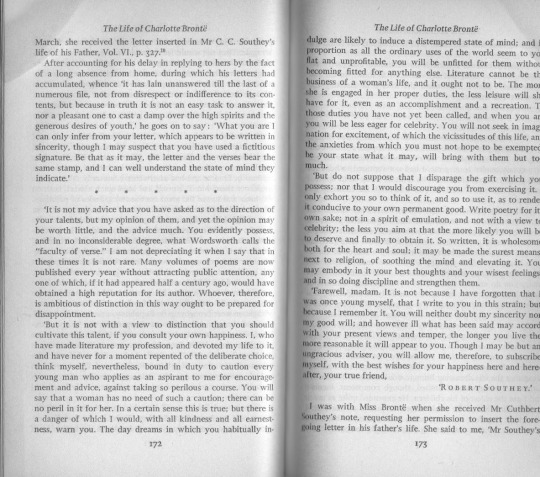
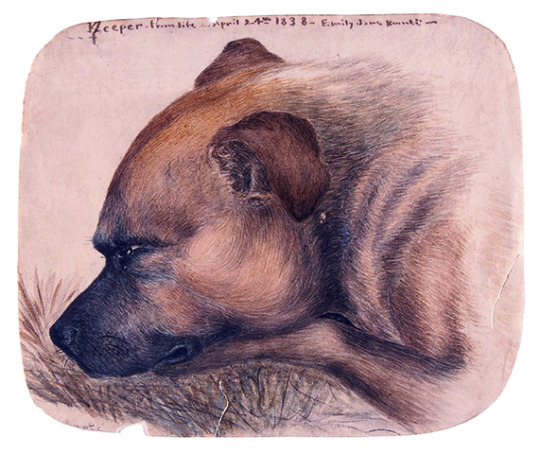
Emily Dickinson was down with O.P.P. (ahem, other person's poetry)
namely Acton, Ellis, and Currer Bell ! as painted above, by their ne'er-do-weel brother, Branwell
Also above, from Elizabeth Gaskell's first edition of Life of Charlotte Brontë, is a letter response from R. Southey and his "advice" to Charlotte on women writers (YIKES!)
lastly, Emily Brontë's portrait of her beloved dog, Keeper
Happy Day Thirteen, National Poetry Month !
2 notes
·
View notes
Text
Anne Brontë's novels are not as well known as those of her more famous elder sisters, but they told truths about the abject oppression of women that English society (even her own sisters) did not want to hear, much less address. Born 1820 in Haworth, Yorkshire, Anne was the youngest of the Brontë children.
"Her second novel and the most shocking of the collective Brontë novels, The Tenant of Wildfell Hall, was published under her nom-de-plume, Acton Bell, and sold out in six weeks. Anne’s depiction of alcoholism, debauchery and what May Sinclair, a member of the Woman Writers' Suffrage League, described in 1913 as “the slamming of Helen Huntingdon's bedroom door against her husband” reverberated throughout Victorian England. It is considered one of the first feminist novels.
"Anne lived for most of her life with her family apart from attending boarding school for two years when she was 16, and a six year spell as a governess in her early twenties. Her mother, Maria, had died when she was barely a year old and in Elizabeth Gaskell’s biography of Charlotte Brontë, their father remembered her as precocious. When Anne was four, he had asked her what a child most wanted. She said, “Age and experience".
"The Brontë sisters like many women writers at the time published their poems and novels under male pen names so that their work might be taken seriously in the male-dominated literary world of the 19th century: they were Currer, Ellis, and Acton Bell.
"Anne’s first novel, Agnes Grey, was published in 1847 under the pen name Acton Bell. It was based on her own experiences as a governess. Agnes Grey wants “to go out into the world; to act for myself; to exercise my unused faculties; to try my own unknown powers” but has to deal with instances of abuse of women and governesses, oppression and isolation.
"Her second novel, The Tenant of Wildfell Hall, published in 1848, went further. The book describes how the protagonist Helen Huntingdon left her husband to protect her son and support them both by painting. This flew in the face of all social conventions and English law. Until the Married Women’s Property Act of 1870, a married woman was not legally a person in her own right; she was just an extension of her husband. She could not own property, sue for divorce or have legal custody of her own children. Mr Huntingdon had the legal right to force her to return, to have her charged with kidnapping for taking her own son, and with theft for supporting herself on her own money since all of her income legally belonged to him.
“Sick of mankind and their disgusting ways," scribbled Anne Brontë in pencil at the back of her Prayer Book.
"Anne met with fierce criticism for her work despite its huge popularity. Even her sister Charlotte said the portrayal of Mr Huntingdon was overly graphic and disturbing. Anne merely remarked mildly that she "wished to tell the truth" and stuck to her guns.
"After Anne's death at the age of 29 of tuberculosis, Charlotte *prevented further publication* of The Tenant of Wildfell Hall, writing: “It hardly appears to me desirable to preserve. The choice of subject in that work is a mistake, it was too little consonant with the character, tastes and ideas of the gentle, retiring inexperienced writer.”
The last word to goes to Anne:
“When we have to do with vice and vicious characters, I maintain it is better to depict them as they really are than as they would wish to appear. To represent a bad thing in its least offensive light is doubtless the most agreeable course for a writer of fiction to pursue; but is it the most honest, or the safest? Is it better to reveal the snares and pitfalls of life to the young and thoughtless traveller, or to cover them with branches and flowers?
O Reader! if there were less of this delicate concealment of facts – this whispering 'Peace, peace', when there is no peace, there would be less of sin and misery to the young of both sexes who are left to wring their bitter knowledge from experience.”
Another ace post from the Attagirls!
https://twitter.com/TheAttagirls/status/1747521384299835472
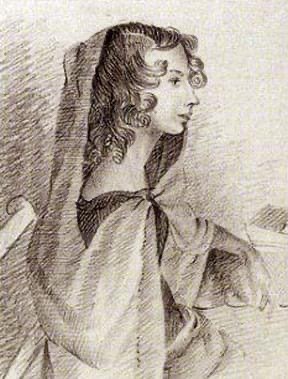
Source: https://www.facebook.com/share/c4rFhgmfdMjxxNF2/?mibextid=WC7FNe
3 notes
·
View notes
Text

Lee's birthday gift
April 1st, 1971
《 About 》
Initially, Jeong-in sent a photo of his bruised neck to the killer to wish him happy birthday knowing he'd see him eventually in person at some other time to give him his gift. In general, the cleaner is someone who prefers to celebrate people at any given time of the year and not just on their birthday (it's why he doesn't bother telling people his birthday is on March 13th), but is still happy to do something for the few people he actually appreciates or cares about.
So remembering what Lee had revealed during the RDV, but also what the killer had bid on; Jeong-in combined that knowledge and his initial idea of a gift for the killer. So, on top of wearing one of Lee's old leather jacket and a hickey on his neck for anyone to see, Jeong-in wrapped Lee's gift in Korean ancient art of gift wrapping using a crimson and black cloth (Bojagi). Inside the box, there is one of the slutty little dinner forks that he wrapped like a flower and a poetry book: Poems by Currer, Ellis and Acton Bell (original print). He chose the book because Lee enjoys poetry, but specifically because that one was written by siblings. It's his own way of honouring Valerie, Lee's twin.
@leemalkovich
3 notes
·
View notes